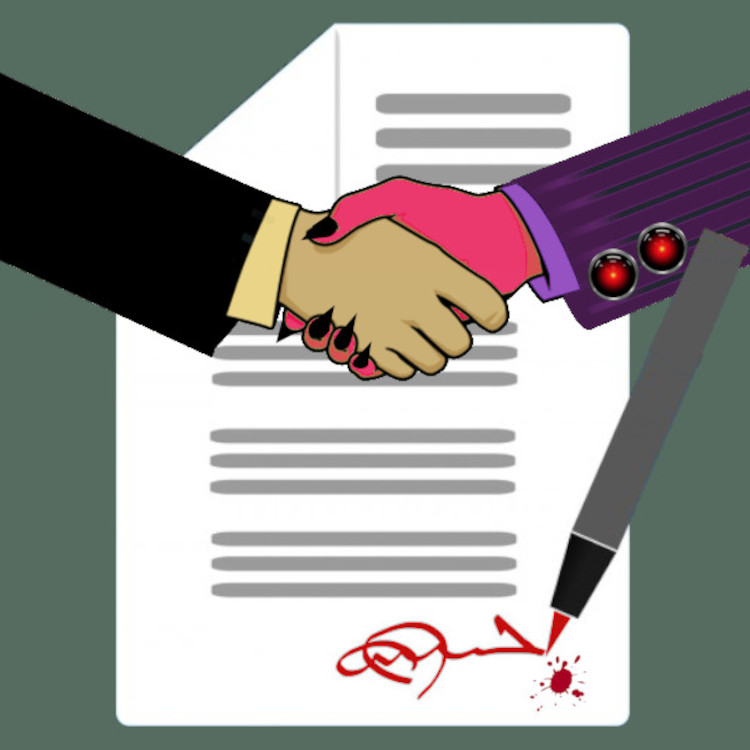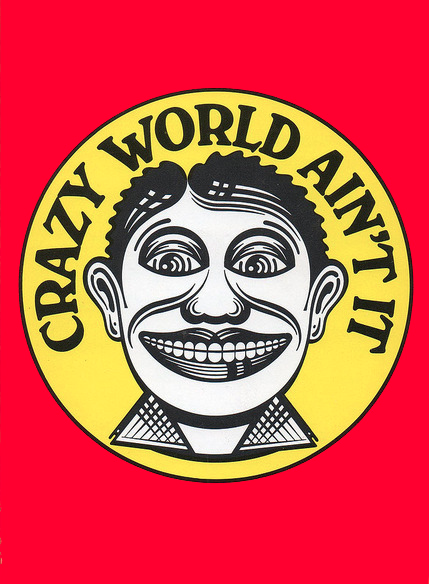
This week on my podcast, I read "So You’ve Decided to Unfollow Me," my @Medium describing the joys of writing to attract the audience of people who want to read what you want to write.
doctorow.medium.com/so-youve-decid… 1/
doctorow.medium.com/so-youve-decid… 1/

If you'd like an essay-formatted version of this thread to read or share, here's a link to it on pluralistic.net, my surveillance-free, ad-free, tracker-free blog:
pluralistic.net/2022/08/08/loc… 2/
pluralistic.net/2022/08/08/loc… 2/
I've been blogging for more than 20 years, but I've been writing for publication for even longer than that, so I can remember the emergence of blogging and what it meant for magazine writers. 3/
The point of magazines, broadly, was to identify a demographic that advertisers wanted to reach and hire writers who'd produce material to entice those people to become readers. 4/
By contrast, the point of blogging was to produce the idiosyncratic, personal mix of topics, formats and styles that the *writer* enjoyed, in hopes of attracting readers whose preferences overlapped with the writer's. 5/
Blogging wasn't just about becoming widely read - it was about finding your people.
When ads came to blogging, their ethos was: "Here is a writer who has attracted an audience who share a sensibility and a collection of interests that are otherwise hard to reach. 6/
When ads came to blogging, their ethos was: "Here is a writer who has attracted an audience who share a sensibility and a collection of interests that are otherwise hard to reach. 6/
"If that's who you want to reach, you can buy ads on this publication."
The promise was that blogging's "long tail" of interests and publications would be matched with a long tail of advertisers who had also had been limited by the difficulty of reaching their own niches. 7/
The promise was that blogging's "long tail" of interests and publications would be matched with a long tail of advertisers who had also had been limited by the difficulty of reaching their own niches. 7/
What changed? Programmatic, behavioral ads: ads that were dynamically served based on surveillance data about the reader. 8/
For example: there was once a bubble in the clickthrough price for ads for lawyers who represented people who'd been poisoned by asbestos and were now sick with mesothelioma:
web.archive.org/web/2006032804… 9/
web.archive.org/web/2006032804… 9/
Writers who had interesting things to say about mesothelioma cleaned up, and some writers pursued the pre-blogging project of turning their attention to mesothelioma to capitalize on the bubble, and cheaters crowded in:
theregister.com/2006/10/06/goo… 10/
theregister.com/2006/10/06/goo… 10/
So the advent of content-based ads distorted the way bloggers blogged, tempting writers to pursue subjects based on advertising rates rather than authentic interests, but surveillance ads supercharged this phenomenon. 11/
That's because surveillance ads were served based on the reader, not the content, which meant that writers seeking to cash in succeeded by attracting the broadest possible audience. 12/
If your blog could serve as a funnel for broad, undifferentiated audiences, realtime auction ads would segment your audience for you, finding valuable mesothelioma ad targets and serving them, along with all your other readers, based on the willingness of advertisers to pay. 13/
This is the commercial pressure that turned the esoteric web into the generic web of sensationalism, clickbait and cute animals. It didn't just transform what writers wrote - it also transformed how writers and readers related to one another. 14/
Writers, obsessing over their analytics reports, worked to maximize "engagement" irrespective of the quality of that attention. 15/
The more readers the could suck in, the higher the likelihood that one of those readers would turn out to be a jackpot, someone who had the right rare disease or interest in a mortgage that would pay out 100x over the median reader. 16/
This changed reader expectations, too. In the early days of blogging, readers would get in touch to say, "I'm so glad to have found someone who shares some or all of my strange, niche interests." 17/
Often, they'd create their own publications that reblogged and elaborated the posts from your blog that interested them the most, adding their own stories tailored to their interests. 18/
A whole suite of tools sprang up to make this process smoother: feed readers with keyword filters and #folksonomy tools for tagging posts to make it easy for others to find (or ignore) posts (this is how @Tumblr works today, and it's delightful). 19/
Today, it's more likely that a reader will get in touch to say, "I love it when you write about X, but I'm not interested in Y - please do less of that, because your Y posts are cluttering up my feed." 20/
In a sensible world, these readers would have powerful tools to screen out Y. But social media platforms are committed to automated, algorithmic "curation" (rather than readers' own filters based on following/ignoring writers, keywords and tags). 21/
So readers end up treating *writers* as balky machine-learning tools, messaging them with "thumbs-down" signals to try to train them to be better tailored to the reader's interests. 22/
I get a lot of this, because I publish online in a bunch of different modes - long essays, quick reactions, streams of seemingly disconnected imagery from arcane and ephemeral sources. 23/
It's pretty common for a reader to write in to say, "I love your vintage ad posts, but I'm not interested in the essays" (or vice versa).
To be clear, that's fine. 24/
To be clear, that's fine. 24/
On a functional, authentic interest-driven internet, these readers would have great tools to just see one and not the other, and I go to great lengths to enable this, publishing on many different platforms in different ways to enable filtering:
pluralistic.net/2021/01/13/two… 25/
pluralistic.net/2021/01/13/two… 25/
After all, I'm not a balky machine-learning system, I'm a writer pursuing his authentic interests. There's a reason for the mix that I post - a method that turns one kind of post into the other kinds:
doctorow.medium.com/the-memex-meth… 26/
doctorow.medium.com/the-memex-meth… 26/
Yes, even the ephemeral images:
doctorow.medium.com/divination-7cf…
Sometimes, readers will write to me in a huff to announce that they're not going to read me anymore. To be clear, that is *fine*. 27/
doctorow.medium.com/divination-7cf…
Sometimes, readers will write to me in a huff to announce that they're not going to read me anymore. To be clear, that is *fine*. 27/
Every reader has their own threshold for when a writer's mix of subjects and formats is sufficiently interesting for them to follow along.
It's wonderful to have readers who want to read what you want to write. 28/
It's wonderful to have readers who want to read what you want to write. 28/
It's great to have readers who want to argue with the substance of what you write and engage with you on it. But a reader who wants you to *write* something different? Ugh. 29/
I'm a reader, too. I follow a lot of different writers in a lot of different media, and I, too, wish for better filters. It's not entitled or arrogant to be interested in only some of a writer's work. 30/
But if that is the case, the right response is to figure out how to filter our the uninteresting material, or learn to ignore it, or stop reading. 31/
It's okay to stop reading me! I'm not required reading. No one is required reading. If you can't find the writer you want to read, try being that writer. That's what I did, and it's *great*. 32/
Here's a link to the podcast episode:
craphound.com/news/2022/08/0…
And here's a direct link to the MP3 (hosting courtesy of the @InternetArchive, they'll host your stuff for free, forever):
archive.org/download/cory-…
Here's my podcast feed:
feeds.feedburner.com/doctorow_podca… 33/
craphound.com/news/2022/08/0…
And here's a direct link to the MP3 (hosting courtesy of the @InternetArchive, they'll host your stuff for free, forever):
archive.org/download/cory-…
Here's my podcast feed:
feeds.feedburner.com/doctorow_podca… 33/
Image:
Sascha Kohlmann (modified)
flickr.com/photos/skohlma…
CC BY-SA 2.0
creativecommons.org/licenses/by-sa… 34/
Sascha Kohlmann (modified)
flickr.com/photos/skohlma…
CC BY-SA 2.0
creativecommons.org/licenses/by-sa… 34/
• • •
Missing some Tweet in this thread? You can try to
force a refresh


















